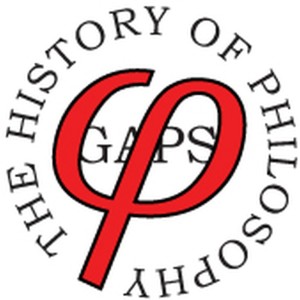Episodes

Sunday Feb 16, 2025
HoP 463 Doctors without Borders: the Republic of Letters
Sunday Feb 16, 2025
Sunday Feb 16, 2025
How scholars around Europe created an international network of intellectual exchange. As examples we consider the activities of Mersenne, Peiresc, Leibniz, Calvet, and Hartlib.

Sunday Nov 10, 2024
HoP 456 - Touch Me With Your Madness - Cervantes’ Don Quixote
Sunday Nov 10, 2024
Sunday Nov 10, 2024
Why do critics consider Don Quixote the first “modern” novel, and what does it tell us about the aesthetics of fiction?

Sunday Apr 28, 2024
HoP 444 - The Dark Night Rises - Spanish Mysticism
Sunday Apr 28, 2024
Sunday Apr 28, 2024
Teresa of Ávila and John of the Cross push the boundaries of individual spirituality and offer philosophically informed accounts of mystical experience.

Sunday Oct 01, 2023
HoP 429 - She Uttereth Piercing Eloquence - Women’s Spiritual Literature
Sunday Oct 01, 2023
Sunday Oct 01, 2023
How women’s writing in England changed from the early fifteenth century, the time of Margery Kempe, to the late sixteenth century, the time of Anne Lock.

Sunday Sep 17, 2023
HoP 428 - Weird Sisters - Shakespeare’s Macbeth and Witchcraft
Sunday Sep 17, 2023
Sunday Sep 17, 2023
How Macbeth reflects the anxieties and explanations surrounding witchcraft and witch-hunting in early modern Europe.

Sunday Sep 03, 2023
HoP 427 - Brave New World - Shakespeare’s Tempest and Colonialism
Sunday Sep 03, 2023
Sunday Sep 03, 2023
Can Shakespeare’s Tempest be read as a reflection on the English encounter with the peoples of the Americas?

Sunday Jul 23, 2023
HoP 426 - A Face Without a Heart - Shakespeare’s Hamlet and Individualism
Sunday Jul 23, 2023
Sunday Jul 23, 2023
How the Renaissance turn towards individual identity is reflected in Shakespeare's most famous play.

Sunday Jul 09, 2023
HoP 425 - Patrick Gray on Shakespeare
Sunday Jul 09, 2023
Sunday Jul 09, 2023
We're joined by Patrick Gray to discuss Shakespeare's knowledge of philosophy, his ethics, and his influence on such thinkers as Hegel.

Sunday Jun 25, 2023
HoP 424 - Hast Any Philosophy In Thee? - William Shakespeare
Sunday Jun 25, 2023
Sunday Jun 25, 2023
How should we approach Shakespeare’s plays as philosophical texts? We take as examples skepticism and politics in Othello, King Lear, and Julius Caesar.

Sunday Jun 11, 2023
HoP 423 - Heaven-Bred Poesy - Philip Sidney and Edmund Spenser
Sunday Jun 11, 2023
Sunday Jun 11, 2023
We begin to look at Elizabethan literature, as Sidney argues that poetry is superior to philosophy, and philosophy is put to use in Spenser’s "Fairie Queene".

Sunday May 07, 2023
HoP 420 - No Place Will Please Me So - Thomas More
Sunday May 07, 2023
Sunday May 07, 2023
What is the message of the famous, but elusive, work "Utopia", and how can it be squared with the life of its author?

Sunday Apr 23, 2023
HoP 419 - Write Till Your Ink Be Dry - Humanism in Britain
Sunday Apr 23, 2023
Sunday Apr 23, 2023
Humanism comes to England and Scotland, leading scholars like Thomas Eylot and Andrew Melville to rethink philosophical education.

Sunday Feb 26, 2023
HoP 415 - The Tenth Muse - Marie de Gournay
Sunday Feb 26, 2023
Sunday Feb 26, 2023
Marie le Jars de Gourney, the “adoptive daughter” of Montaigne, lays claim to his legacy and argues for the equality of the sexes.

Sunday Jan 15, 2023
HoP 412 - Not Matter, But Me - Michel de Montaigne
Sunday Jan 15, 2023
Sunday Jan 15, 2023
In his “Essays” Montaigne uses his wit, insight, and humanist training to tackle his favorite subject: Montaigne.

Sunday Jul 17, 2022
HoP 401 - Word Perfect - Logic and Language in Renaissance France
Sunday Jul 17, 2022
Sunday Jul 17, 2022
Jacques Lefèvre d’Étaples and Julius Caesar Scaliger fuse Aristotelianism with humanism to address problems in logic and literary aesthetics.

Sunday Jun 19, 2022
HoP 399 - Seriously Funny - Rabelais
Sunday Jun 19, 2022
Sunday Jun 19, 2022
In his outrageous novel about Pantagruel and Gargantua, Rabelais engages with scholasticism, humanism, medicine, the reformation, and the querelle des femmes.

Sunday Jun 05, 2022
HoP 398 - Pearls of Wisdom - Marguerite of Navarre
Sunday Jun 05, 2022
Sunday Jun 05, 2022
A Renaissance queen supports philosophical humanism and produces literary works on spirituality, love, and the soul.

Sunday May 22, 2022
HoP 397 - Do As the Romans Did - French Humanism
Sunday May 22, 2022
Sunday May 22, 2022
We begin to look at philosophy in Renaissance France, beginning with humanists like Budé and the use of classical philosophy by poets du Bellay and Ronsard.

Sunday Jul 04, 2021
HoP 376 - Books That Last Forever - Erasmus
Sunday Jul 04, 2021
Sunday Jul 04, 2021
The “learned piety” of Desiderius Erasmus, the greatest figure of northern humanism.

Sunday May 23, 2021
HoP 373 - Lords of Language - Northern Humanism
Sunday May 23, 2021
Sunday May 23, 2021
Rudolph Agricola, Juan Luis Vives and other humanist scholars spread the study of classical antiquity across Europe and mock the technicalities of scholastic philosophy.

